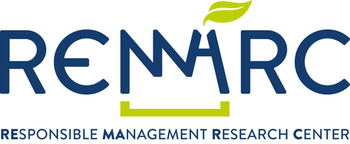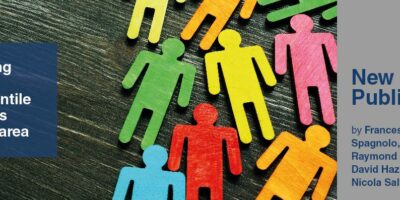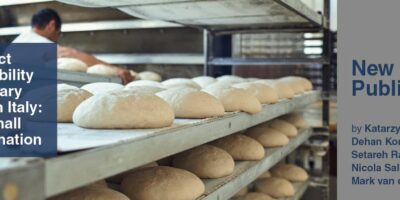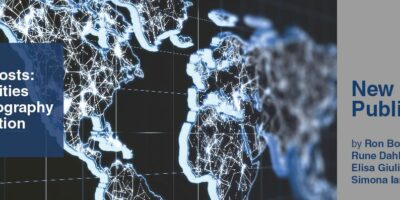A plea to politicians: ask the economists to tell the truth

A plea to politicians: ask the economists to tell the truth (qui la versione in ITALIANO)
TO
the President of the EU Commission (Click HERE to see Ms von der Leyen’s ANSWER)
the President of the EU Parliament
the Prime Ministers of the EU countries
the President of the USA
the President of Russian Federation
the Prime Ministers of the other OECD Countries
Economists, governments, and media focus on GDP to measure the economic consequences of the COVID-19 pandemic. Recovery policies largely aim at sustaining demand and supporting the existing production structure. At the same time, at least for 100 years, economic theory has shown that unregulated markets produce too much of some goods and not enough of others, as compared with what we would like to have. The reasons are the competitive society that normalises shifting of costs on to others to make profits (the so-called negative “externalities”).
As is well known by economists, there are many good reasons for criticizing the use of GDP beyond its technical economic domain. However, the present plea wants to remind economists and policy makers that, even from a standard and mainstream economics approach, looking at GDP can hide serious misallocations of jobs and other production factors. The same level of GDP can be associated with very different levels of well-being.
For example, automobiles cause road accidents, urban air pollution, and greenhouse gases but rather than addressing the root causes of these problems through alternative transport modes or new working arrangements, resources are targeted at fixing problems afterwards. It would be cheaper to treat the causes of car accidents so they can be avoided, instead of allocating money to treat people involved in the accidents and to repair cars. The lock-down taught us that remote working is possible, implying less time and money spent on commuting, less car accidents, and lower pollution. This is one of the many examples that reveal we are living in a “broken window” economy where smashing windows makes economic sense because it leads to more window repairs. GDP nourishes itself from the misallocation of resources, social cost shifting, and resulting harm.
The potential for restructuring following the COVID-19 pandemic gives every country a unique opportunity to promote job reallocation from useless and harmful economic activities toward valuable ones. Each person can now envision many examples of how such restructuring can occur and each community has the chance of reflecting upon the transformation that suits it best. We can move to an economy that generates less waste and uses less toxics, employs more people in meaningful jobs promoting local sustainability, has shorter workweeks, is more resilient, and has more space for ethics, justice, and equity.
The general guiding principle for any economic policy, as emphasised by Ecological Economics and Industrial Ecology, should be to minimize the economy’s materials flows (including energy). Increasing the speed at which extracted materials become waste increases GDP but degrades our environment, negatively affecting our well-being and happiness, and forcing us to work much more than necessary to get the same level of services.
We ask governments and institutions to reorient our economies to move them away from a model based on producing goods that quickly become garbage.
We urgently need a less hazardous and low-carbon economy that efficiently and effectively sustains human needs and well-being.
Economists should follow their own logic and ask for transforming the economy to improve wellbeing and make progress towards sustainability.
SIGNATORIES
-
- Tommaso Luzzati, Università di Pisa, Italy
- Simone D’Alessandro, Università di Pisa, Italy
- Tiziano Distefano, Università di Pisa, Italy
-
- Elisa Giuliani, Università di Pisa
- Nicholas Ashford, MIT Sloan School of Management, Cambridge MA, USA
- Federico Demaria, Federico Demaria, Universitat de Barcelona, Spain
- Joshua Farley, University of Vermont, USA
- Ralph P. Hall, Virginia Tech, USA
- Tim Jackson, University of Surrey and CUSP, UK
- Giorgos Kallis, Universitat Autònoma de Barcelona, Spain
- Peter May, Federal Rural University of Rio de Janeiro, Brazil
- Massimiliano Mazzanti, Università di Ferrara, Italy
- Dan O’Neill, University of Leeds, UK
- Begüm Özkaynak, Boğaziçi University, Turkey
- Amy Showalter, Virginia Tech, USA
- Clive Spash, WU Vienna University of Economics and Business, Austria
- Hannes Vetter, University Heidelberg, Germany
- François Briens, IIRCCESF, France
- Claudio Cattaneo, Masaryk University, Brno, Czech Republic
- Pablo Dominguez, CNRS, France
- Jordi Roca, Universitat de Barcelona, Spain
- Plumecocq Gael, INRAE, France
- Tiago Teixeira da Silva Siqueira, INRAE, France
- Junior Garcia, Federal University of Paraná, Brazil
- Adrián Saldarriaga Isaza, Universidad Nacional de Colombia – Sede Medellín, Colombia
- Lucas Ferreira Lima, University professor at FMU (Laureate International Universities), Brazil
- Bleys Brent, Ghent University, Belgium
- Gabriel Porcile, UFPR and ECLAC, Chile
- Katia Romero, Universidad Veracruzana, Mexico
- Ernest Aigner, WU Vienna University of Economics and Business, Austria
- Thais Diniz Oliveira, CIRED, France
- Juan David González Ruiz, Universidad Nacional de Colombia, Colombia
- Charlotte Guillard, University College London, United Kingdom
- Jose Carlos Silva Macher, Pontificia Universidad Católica del Perú, Departamento de Economía , Perú
- Lukas Hardt, University of Leeds, United Kingdom
- Stef Kuypers, Happonomy, Belgium
- Markus Krecik, Freie Universität Berlin, Germany
- Sylvie FERRARI, University of Bordeaux, France
- Ana Casquete, Universidad de Burgos, Spain
- Joseph S. Weiss, ISEE, BRAZIL
- Ademar Romeiro, Institute of Economics – University of Campinas, Brasil
- Hartmann Hans J., La Rochelle University, France
- Peter Graham, Concordia University, Montreal, Canada
- Pedro Alarcon, FLACSO, Ecuador
- Robert Richardson, Michigan State University, United States
- Madhavi Venkatesan, Northeastern University, USA
- Jan Vávra, University of South Bohemia, Czechia
- Anitra Nelson, Melbourne Sustainable Society Institute, University of Melbourne, Australia
- David Robinson, Laurentian University, Sudbury Ontario, Canada
- Oliver Braunschweig, The New School, USA
- Judith McNeill, University of New England, Armidale, , Australia
- Giovanni Marin, Università di Urbino Carlo Bo, Italy
- Boyd Blackwell, ANU, Australia
- Kanchan Chopra, Formerly Institute of Economic Growth, University of Delhi, Delhi, India
- Mario Morroni, Università di Pisa, Italy
- Ingmar Schumacher, IPAG Business School , France
- Jim Crosthwaite Crosthwaite, Independent, Australia
- Roxana Juliá, New York University, United States
- Mladen Domazet, Institute for Political Ecology, Zagreb , Croatia
- Stefano Menegat, McGill University, Canada
- Lekha Mukhopadhyay, Jogamaya Devi College, Calcutta University, India
- Alpina Begossi, Fisheries and Food Institute, Brazil
- Oscar Gonzalo Manrique Diaz, Universidad Nacional de Colombia, Colombia
- Michele Filippo Fontefrancesco, UNISG, Italy
- Nick Martin, Universitat Autònoma de Barcelona, Spain
- Thomas Hahn, Stockholm University, Sweden
- Lino Sau, Università di Torino, Italy
- Paolo Coccorese, University of Salerno, Italy
- Christopher DeGeer, University of Waterloo, Canada
- Davide Fiaschi, University of Pisa, Italy
- Matthew Evangelista, Cornell University, USA
- Neri Salvadori, University of Pisa, Italy
- Rachel, Graefin von Keyserlingk, Universität zu Köln, Germany
- Marta Marson, Università di Torino, Italy
- Jonas Van der Slycken, Ghent University, Belgium
- Domazet Mladen, IPE, Croatia
- Hofferberth Elena, University of Leeds, UK
- Ines Oman, Austrian Foundation for Development Research, Austria
- Pompeo Della Posta, University of Pisa, Italy
- Laurie Elizabeth Adkin, University of Alberta, Canada
- Alessio Moneta, Scuola Sant’anna Pisa, Italy
- Michele Carducci, Università del Salento, Italy
- Mauro Gallegati, UNIVPM, Italy
- Patricia Ellie Perkins, Canada
- Barbara, Armani, Università di Pisa, Italy
- Nicola, Meccheri, University of Pisa, Italy
- Rodolfo Metulini, University of Salerno, Italy
- Elena Vallino, Politecnico di Torino, Italy
- Alida Sangrigoli, Politecnico di Torino, Italy
- Gianni Vaggi, University of Pavia, Italy
- Simone Borghesi, University of Siena and EUI, Italy
- Lorenzo Pellegrini, Erasmus University, The Netherlands
- Miklós Antal, Eötvös Loránd University, Hungary
17th September 2020



